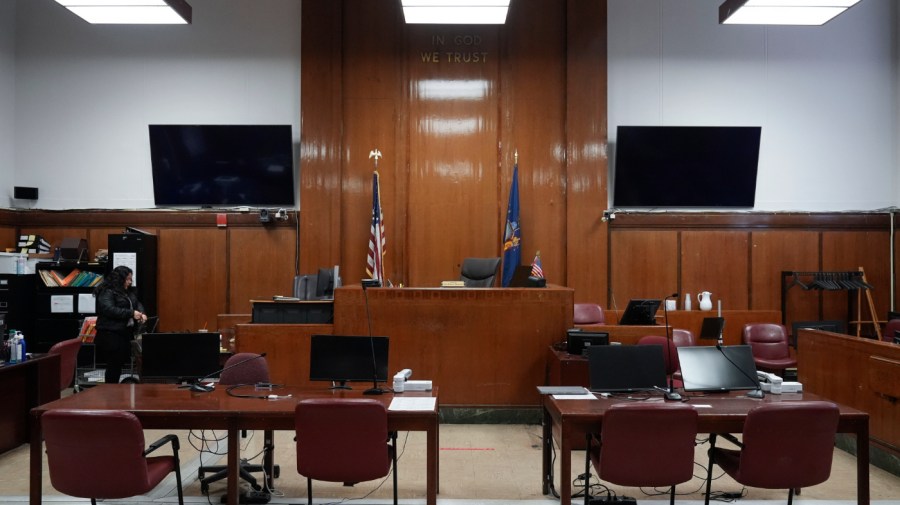
For several decades, the proliferation of private and governmental lawsuits against American businesses have imposed enormous burdens on society.
Massive judgments and settlements have cost shareholders hundreds of billions of dollars. Insurance premiums for businesses have skyrocketed. Productivity has suffered as companies increasingly divert resources to defending lawsuits.
Who ends up paying the cost for most of this? American consumers. Who ends up benefiting? Trial lawyers, who have raked in billions in fee awards.
Luckily there is now a rare chance to fix this broken system. Voters have handed the incoming congressional majority a powerful opportunity to enact badly needed reforms.
Here are 10 suggestions:
- First, adopt the so-called “English Rule,” requiring the loser to pay the winner’s legal fees. This alone would deter the enormous number of frivolous lawsuits filed in federal courts every year. But to give the rule more teeth, the penalty should be tripled whenever a judge finds the lawsuit was filed without a substantial factual basis.
- Second, ban third parties from funding/financing lawsuits. The litigation finance industry has grown enormously over the last two decades. U.S. and even foreign investors understand how easy it is to sue American businesses and force them into huge settlement payouts, given the risks companies face if they go to trial. Those investors should not be permitted to profit from lawsuits in which they had no lawful interest.
- Third, require unanimous verdicts in civil cases. Unless a plaintiff can persuade the entire jury of the merits of their case, they should not be allowed to prevail.
- Fourth, cap legal fees in federal class action cases at a maximum of $50 million, payable only after all appeals are exhausted. Trial lawyers who invest their own time and resources pursuing valid cases deserve compensation, but the amount must be reasonable. Fee awards should be calculated based solely on time records submitted under penalty of perjury at benchmarked hourly rates. “Lodestar” calculations and other gimmicks designed to inflate fee awards should be banned.
- Fifth, federal removal jurisdiction should be expanded to cover all state lawsuits against companies operating in interstate commerce. Far too often, companies face litigation in state courts with no ability to avail themselves of the right to transfer cases to federal court. This would promote consistency and predictability.
- Sixth, Congress should preempt state and local laws unduly burdening entities operating in interstate commerce. Companies today face a crazy quilt of inconsistent laws, rules and regulations at the state and local level that impose enormous costs on their shareholders and customers. California and New York are the two worst offenders, imposing a huge array of draconian rules on interstate businesses. Congress should preempt this mess and enact one set of interstate business rules for the entire country.
- Seventh, Congress should repeal all “strict liability” offenses in federal civil and criminal statutes. It is deeply offensive to our most fundamental notions of freedom to allow a person or company to be stripped of their liberty or property when there is zero evidence of intentional, reckless or even negligent conduct.
- Eighth, Congress should rein in so-called proxy advisory firms, most of whom are pursuing their own agendas, by reinstating via legislation the Securities and Exchange Commission’s July 2020 rules which were rescinded in July 2022.
- Ninth, Congress should eliminate administrative law judges in federal agencies and vest federal judges with sole jurisdiction to adjudicate agency actions. Allowing administrative law judges working for administrative agencies to rule on the legality of those same agencies’ actions presents an irreconcilable conflict of interest.
- Tenth, Congress should eliminate the so-called “card check” process for unionization and require secret ballot elections. Unions perform a valuable role when they engage in good faith collective bargaining on behalf of employees. But the card check process, where union organizers can approach employees in front of their coworkers and “ask” them to sign up, is inherently intimidating and anti-democratic. Instead, Congress should protect both workers and companies by mandating secret ballot elections as a requirement for unionization.
Our legal system is rife with other problems. The reforms suggested above represent a starting point for eliminating some of the worst abuses and positioning the country for economic growth to benefit workers and consumers.
The window of opportunity is about to open. Hopefully, the incoming Congress will make this a top priority.
Steven E. Zipperstein is the former general counsel of two companies and a former federal prosecutor.












